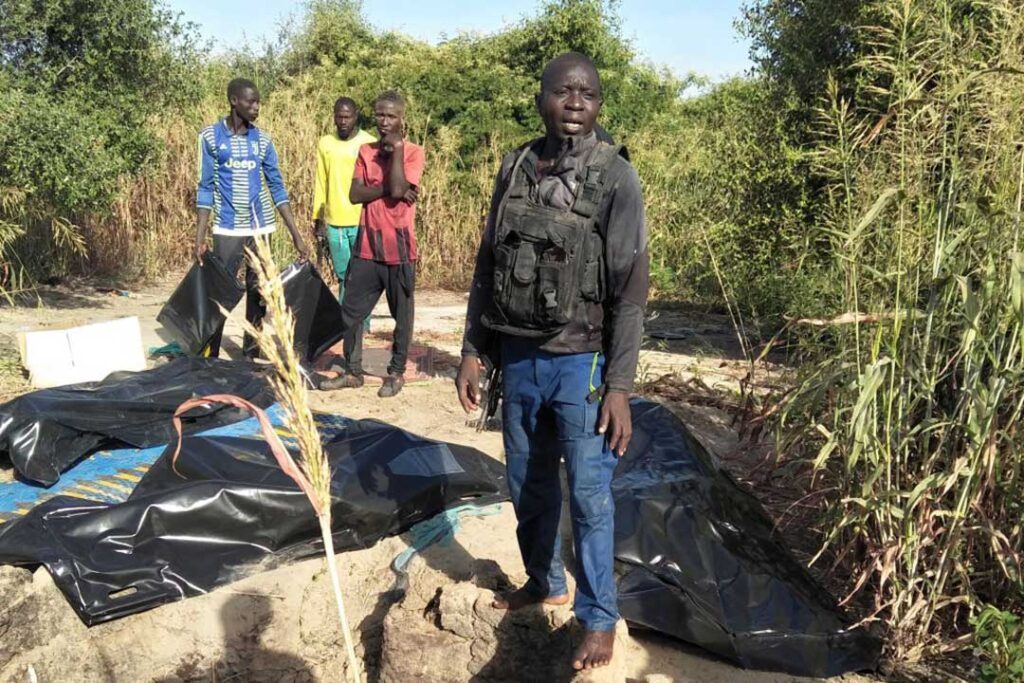ADF STAFF
The Nigerian Air Force (NAF) has intensified its campaign of airstrikes against extremist militant groups in the northeast. In revenge attacks, fleeing insurgents have begun targeting farmers whom they falsely blame for enabling the air attacks.
“Anytime they kill farmers, fishermen or scavengers, they always brand them as spies,” local security analyst Zagazola Makama told ADF.
Makama, a counterinsurgency expert based in Borno State, documented several NAF airstrikes in early November that targeted Boko Haram and the Islamic State West Africa Province (ISWAP).
“These military airstrikes and ground offensives have forced ISWAP and Boko Haram to adopt new tactics of going for their attacks on foot, stopping the use of Hilux [pickup] trucks and spreading out their men in very small units and spatial locations to avoid heavy casualties when targeted by airstrikes and artillery shelling,” he wrote on his website, zagazola.org.
“The terrorist groups have also focused more of their attacks on vulnerable, local farmers communities who lacked a strong security presence.”
Rice farmers were harvesting their crops on the evening of November 5 when Boko Haram fighters on motorcycles descended upon the villages of Bulabulin, Karkut and Koshebe in the Mafa local government area, about 15 kilometers from Borno’s capital, Maiduguri.
They killed at least 15 rice farmers. Some were able to escape, while others reportedly were abducted.
“They did not use guns to kill them,” Mohammed Haruna, secretary of the Zabarmari Rice Farmers Association, told Reuters. “Instead, they used cutlasses and knives to stab them to death, while others were beheaded.”
One day later, the NAF struck ISWAP positions in the Mobbar local government area in Borno State as part of Operation Hadin Kai. Makama said it was the fourth successful airstrike against militants in the northeast in seven days, killing “very large numbers of ISWAP terrorists.”
The NAF struck again on November 8 and 11, aiming to clear out “a remnant of terrorists.”
“The terrorists, who had hidden four gun trucks under thick shrubs had earlier perfected plans to attack friendly troops’ location around Damboa and Wajiroko,” the NAF wrote in a November 12 statement.
Makama reported another NAF airstrike killed “scores of ISWAP terrorists on canoes” at Baranga village along the fringes of Lake Chad on November 18.
Boko Haram has waged war on Nigeria since 2009, in the process spawning other groups including ISWAP. Militants have killed 40,000 people and forced around 2 million people to flee their homes in the northeast, according to the United Nations.
Makama said the attack on rice farmers in the Zabarmari showed the way farmers are abused by militants, who often force them to pay taxes and provide food and other goods.
“There was a relationship between the insurgents and the Zabarmari farmers,” he told ADF. “The farmers that were killed normally paid levies and provided them with food. But after refusing to pay them, the farmers were accused of informing and leading the Nigerian troops to attack the insurgents, which prompted the mass murderous act.”

